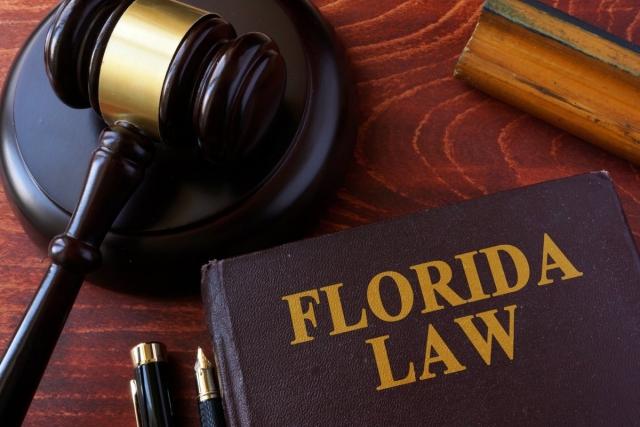
Navigating the world of rental management in the Sunshine State may seem complex, but understanding your rights and responsibilities is crucial. Florida's landlord-tenant laws, principally governed by Chapter 83 of the Florida Statues, provide a framework to ensure a fair and legal rental relationship. This guide will walk you through Florida landlord-tenant regulations and highlight important updates for 2025.
- Lease agreements
- Security deposits
- Landlord and tenant responsibilities
- The eviction process
- Key legal updates for 2025
- Frequently asked questions
Florida Lease Agreements
A lease agreement is the legal contract that outlines the terms of the rental. In Florida, leases can be written or oral. However, creating a written lease is always highly recommended because it provides clear documentation of the agreement, which can prevent future misunderstandings and disputes.
What should a lease include?
A comprehensive Florida lease agreement should contain several key elements:
- Names of all parties: This includes the landlord and all adult tenants.
- Property address: A clear description of the rental unit.
- Lease term: The duration of the rental, whether it's a fixed term (like one year) or month-to-month.
- Rent amount: The specific amount due, the due date, and any acceptable payment methods.
- Security deposit details: The amount of the deposit and the conditions for its return.
- Rules and policies: Any specific rules regarding pets, parking, maintenance, or property use.
It is vital for both you and renters to read and understand the lease fully before signing. This document governs your entire rental relationship.
Security Deposits
Security deposits are a common source of disputes, but Florida law provides clear rules on how they must be handled. The primary purpose of a security deposit is to cover any damage beyond normal wear and tear or to cover unpaid rent.
Handling the security deposit
When you receive a security deposit, you have three options for storing the funds:
- Non-interest-bearing account: Keep the money in a separate Florida bank account.
- Interest-bearing account: Hold the funds in a separate, interest-bearing Florida bank account and pay the tenant at least 75% of the annualized average interest rate or 5% simple interest per year.
- Surety bond: Post a surety bond with the clerk of the court in the county where the property is located.
Within 30 days of receiving the deposit, you must notify the tenant in writing about how the funds are being held.
Returning the security deposit
The timeline for returning a security deposit depends on whether you intend to make a claim.
1. No claim: If you do not intend to claim any of the deposit, you must return the full amount within 15 days of the tenant moving out.
2. Making a claim: If you plan to withhold some or all of the deposit, you must send the tenant a written notice by certified mail within 30 days. This notice must list the specific reasons for the claim. the tenant then has 15 days to object in writing.
Florida Landlord and Tenant Responsibilities
Florida law outlines specific duties for both landlords and tenants to maintain a safe and habitable living environment.
Landlord duties
Your primary responsibility is to ensure the rental property is habitable. This includes:
- Complying with all applicable building, housing, and health codes.
- Providing functioning plumbing, hot water, and heating.
- Maintaining roofs, windows, doors, floors, and walls in good repair.
- Ensuring screens are installed and maintained annually.
- Providing for the extermination of pests.
- Supplying garbage receptacles and arranging for pickup.
Tenant duties
Your tenants also have obligations to keep the property in good condition. These include:
- Keeping their part of the premises clean and sanitary.
- Using all appliances and facilities in a reasonable manner.
- Not intentionally or negligently damaging the property.
- Conducting themselves in a way that does not disturb neighbors.
The Eviction Process in Florida
An eviction is a legal process you must follow to remove a tenant from your rental property. A landlord cannot change the locks or shut off utilities to force a tenant to vacate property. This is known as a "self-help" eviction and is illegal in Florida.
The process typically begins with a written notice.
- Three-Day Notice for Non-Payment of Rent: If a tenant fails to pay rent, you can issue a three-day notice to either pay the rent or vacate the property.
- Seven-Day Notice for Lease Violations: For lease violations, you can issue a seven-day notice. This notice can either give the tenant a chance to cure the violation or demand that they vacate, depending on the severity of the issue.
If the tenant does not comply with the notice, you must file a formal eviction lawsuit, also known as an unlawful detainer action, with the court. Only a court order can legally force a tenant to move out.
Key Legal Updates for Florida Landlords
The legal landscape is always evolving in Florida. Staying abreast of changes will help to ensure that you are operating within the required guidelines. Below are two recent updates.
1. Flood disclosure
Starting October 1, 2025, landlords are required by SB 948 (2025) to inform tenants, by written disclosure, about the flood risk associated with a rental property. This law applies to leases lasting 12 months or longer.
Action steps: Confirm whether your property is in a flood zone and find out the degree of risk. Provide prospective tenants with a separate disclosure document detailing the flood risk before or at the time the lease is presented. A separate document is required. A clause may not be inserted into the lease agreement.
2. Statutory notices
Effective July 1, 2025, under HB 615 (2025), landlords and tenants may mutually agree, through signed consent, to send and receive statutory notices electronically. Either party has the right to revoke the agreement at any time.
Action steps: Create a letter that outlines your desired electronic method(s) of communication with any current tenants. Request tenant approval, advising that both landlord and tenant(s) have to agree, and the agreement may be revoked in writing by either party.
For future tenants and lease renewals, include an addendum to the lease that includes: the request for electronic communication, the mutual right to revoke electronic communication in writing, and space for the tenant’s initials or signature.
Florida’s Landlord-Tenant Laws: Key to Protecting Your Assets
Staying informed about evolving landlord-tenant laws in Florida is essential for protecting your investments and maintaining positive relationships with renters. By proactively aligning new regulations, you can ensure compliance and minimize the risk of costly situations for both you and your tenants.
Frequently Asked Questions
1. Can I start sending legal notices by email to my Florida tenants immediately?
No, you can only switch to email for statutory notices if you and your tenant have both signed a consent agreement to do so. Without this signed agreement, you must continue to follow the traditional methods of delivering notices as required by law.
2. What happens if I don't comply with Florida’s new flood disclosure law?
Failing to provide the required flood risk disclosure can lead to legal penalties and disputes. Non-compliance may result in fines or give the tenant grounds to break the lease. It's crucial to follow the new rules to protect yourself from liability.
3. Do I have to change my lease agreements because of these new Florida laws?
Yes, it is highly recommended. You should update your lease agreements to include clauses for the new email communication consent. Additionally, for leases of 12 months or longer, you will need a separate flood risk disclosure document as required by SB 948, effective October 1, 2025.
4. What is a statutory notice?
A statutory notice is a formal, legally required communication that must be provided by one party to another in accordance with specific laws or regulations. Examples of statutory notices include: lease violations, eviction notices, inspection notices, and lease terminations.
5. What is a flood zone?
A flood zone is a geographic area that the Federal Emergency Management Agency (FEMA) has classified based on its level of flood risk. These zones are used to determine the likelihood of flooding in a specific area and are often included in flood maps. The zones are categorized into three tiers of risk: high, moderate, and low.
This article is for informational purposes only and does not constitute legal or professional advice. For guidance specific to your situation, you should consult a qualified attorney or other relevant professionals.


